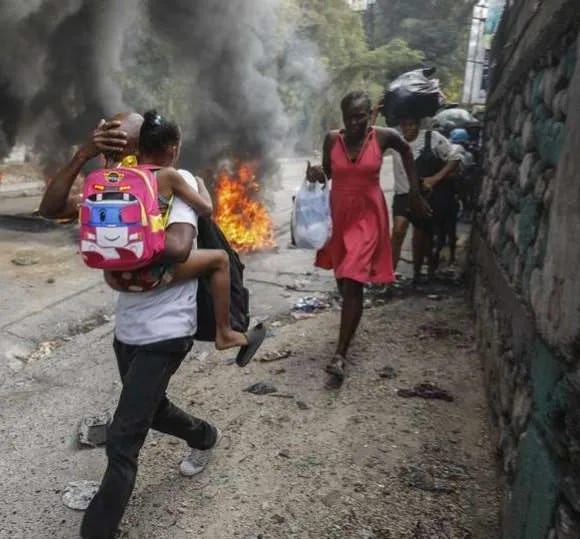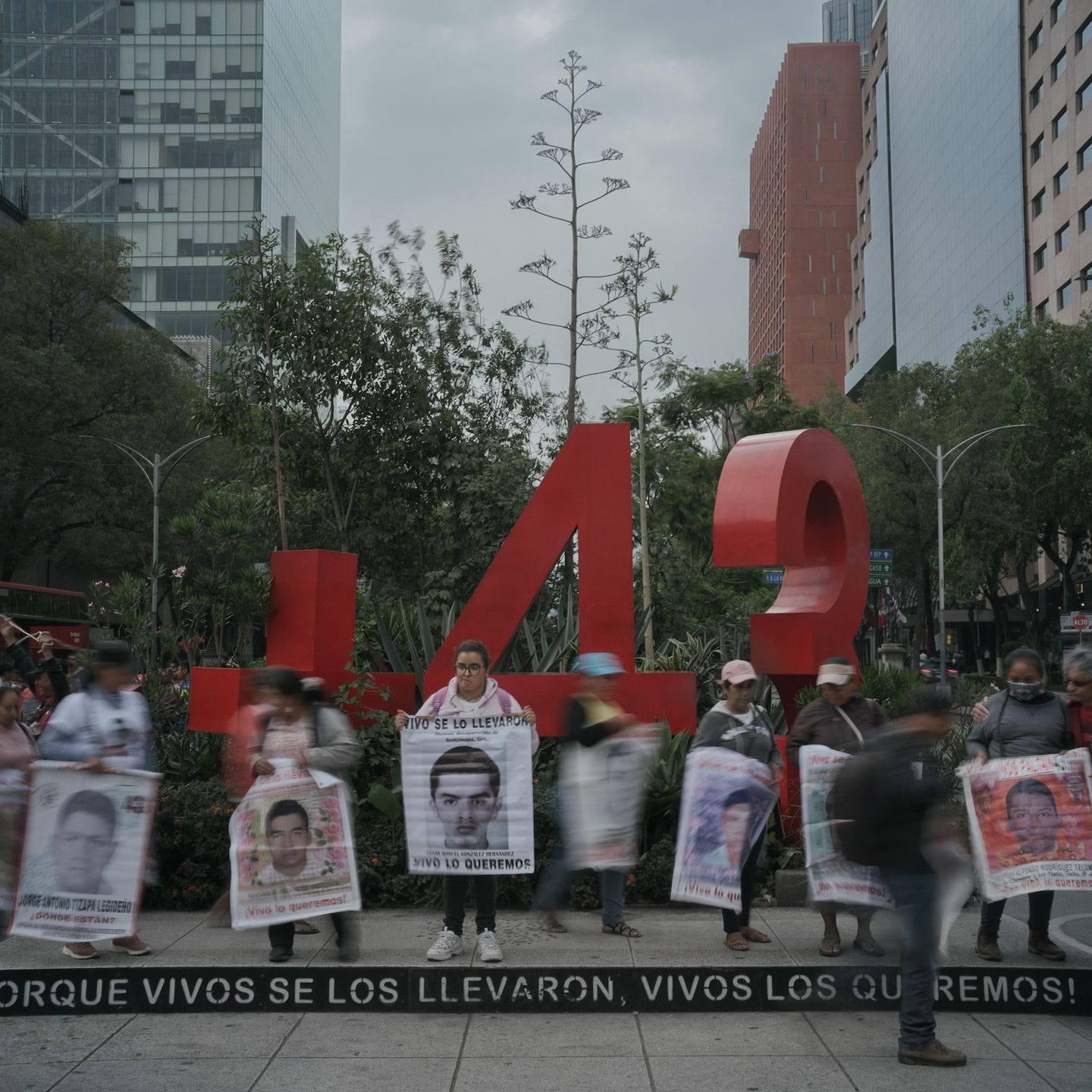
The issue of Haiti is dominating an ongoing Caribbean summit in Guyana this week. Leaders met with Haiti’s embattled interim leader Ariel Henry on Sunday, to discuss the gang violence that has submerged the country in crisis. (See yesterday’s briefs and Friday’s.)
Some leaders said that Henry’s presence in government has become a stumbling block to progress. Bahamian Foreign Minister Fred Mitchell told the Associated Press that opposition leaders and other groups in Haiti oppose Henry as prime minister.
Antigua and Barbuda Prime Minister Gaston Browne called on Henry to “step aside” and allow for efforts to continue unimpeded in finding a solution to the socio-economic and political situation in Haiti, reports the Caribbean Media Corporation.
“At the end of the day, he barely has legitimacy and we have to be careful that perception is not seen as the reality of the Haitian people which could only serve to inflame the situation,” Browne told CMC.
In a Miami Herald opinion piece Haitian human rights lawyers Mario Joseph and Brian Concannon say “Haiti’s gang violence is a symptom of the government’s inability to provide basic government services,” and that, instead of troops, many Haitians “want the United States to simply stop propping up the corrupt, repressive Haitian government that is fueling the violence.”
In brief comments to the AP, Henry said that calls for his removal are a power grab, and that nothing will happen “unless we work together.”
Yesterday, the U.S. reiterated its financial, material and logistical support for a multinational force whose deployment remains uncertain, reports the Associated Press.
The U.S. celebrated a commitment from Benin to send 2,000 troops to support a planned Kenyan-led international force, reports Reuters.
The Bahamas, Belize and Jamaica, which are members of a regional trade bloc known as Caricom, already have offered to send troops and police officers. And Guyana has promised to donate money to the effort.
Regional Relations
“In Washington D.C., decision-makers are increasingly worried that strategic rivals could be taking over Venezuela. The U.S. has created a vacuum of influence since the Trump administration’s drive to sanction and isolate the country,” according to Forbes.
Brazilian “President Luiz Inácio Lula da Silva has set his sights on giving the Global South a larger voice in world decision-making, using his country's presidency this year of the G20 group of largest economies,” reports Reuters.
Brazil
Lula has successfully wooed both markets and his country’s poorest voters in the first year of his third presidency: the economy expanded by triple what analysts expected, inflation slowed, and polls show Lula’s supporters feel he’s delivering, reports the Bloomberg.
Brazilian Environment Minister Marina Silva said that the world is currently witnessing wars with devastating losses and that significant instability could further arise if governments fail to address climate change issues, reports Reuters.
Brazil’s biggest network of food banks, Sesc Mesa Brasil, collects food that would otherwise go to waste from supermarkets, farmers and other suppliers and retailers, sorts it, and then donates it to partner organizations, reports the Guardian.
Mexico
A report last week on allegations of ties between Mexican President Andres Manuel López Obrador and drug cartels, “was the last link in a long chain of frictions and disagreements between the Mexican government and the U.S. agencies operating in Mexico — the DEA in particular,” reports El País. (See last Friday’s post.)
Colombia
Colombia's government and the ELN guerrilla group have said they will resume peace talks in Havana, which the rebels had put on hold last week. (El País, Associated Press)
Argentina
Argentine President Javier Milei is at loggerheads with several governors, including those from the conservative Juntos por el Cambio, regarding cuts to provincial funding. The Milei administration condemned a threat, yesterday, by the governor of the oil-rich province of Chubut to cut off energy supplies to the rest of the country amid a dispute over austerity measures. (Associated Press, Reuters)
Regional
Left-right ideologies are irrelevant for the region’s authoritarian populists — from Maduro to Bukele — whose unifying characteristic is the portrayal of invulnerability, argues Sergio Ramírez in El País.
Oil leaking from a capsized barge off the coast of Tobago has spread hundreds of miles to reach the Caribbean island of Bonaire, reports the BBC. (See last week’s Just Caribbean Updates.)
Peru
Peru declared a health emergency across most of the country on Monday as a heat wave and heavy rains have led to a spike in dengue fever cases. (Reuters)
Cayman Islands
“At least seven people have been seriously injured in a shooting at a crowded football match in the Cayman Islands,” reports the Associated Press.
Culture Corner
Activists have lined Mexico City’s Paseo de la Reforma with “anti-monuments,” “with grim reminders of the extreme violence of recent decades,” reports the Washington Post.
The antimonumentos corridor is one of the ways in which memory activists seek to mark significant events of violence and state neglect, and expressly confront both the government and society by voicing public demands for justice, accountability, and non-repetition, in a context of more than 110,000 enforced disappearances and hundreds of thousands of deaths since the start of the “war on drug cartels” in 2006, according to a Sociologica piece by Alexandra Délano Alonso and Benjamin Nienass. (See The Ideas Letter Issue 3.)





